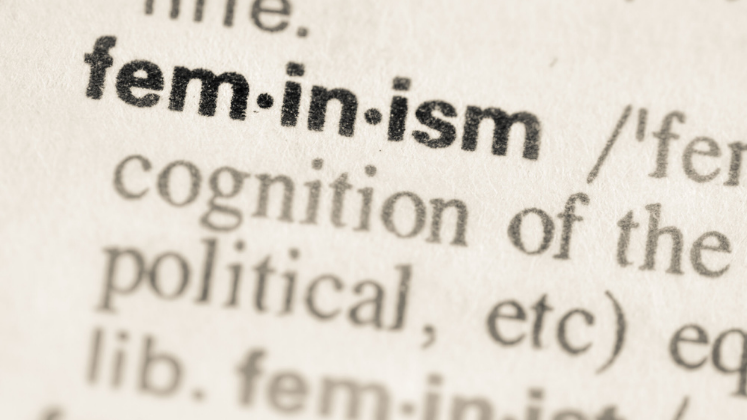Something is not working – it’s time to try a social capital approach. Food insecurity is a leading contributing factor to the urgent cost-of-living crisis in the United Kingdom (UK). By leveraging social capital – the networks, norms and trust that enable cooperation and collective action among people – we can buffer economic shocks, target equity and create more resilient and inclusive communities to cope with the challenges of food insecurity and waste. In this blog, MSc Psychology of Economic Life students Emma Martínez Daniel, Valeria Dibisceglia and Tara Tibblin explore three community-based policies that aim to increase food security and reduce food waste in the UK: a community freezer network, a food sharing app, and a local food cooperative.
Inflation is disproportionately detrimental to low-income households. In October 2022, UK inflation reached a 41-year high of 11.1%, but when broken down by class, the Consumer Price Index (CPI) reported 11.9% inflation for low-income households compared to 10.5% for high-income households. To add insult to injury, low-income households are already more vulnerable to high inflation, as a larger proportion of their income is spent on food and energy.
Food inflation alone hit 17.1% in mid-February 2023.
For many, high inflation means having to choose between paying for rent, heating, or food. The severity of food insecurity varies from needing to buy cheaper and less nutritious food options to relying on food banks or even skipping meals. Reports from late 2022 indicate that 2 out of 5 UK citizens had to reduce their food shopping and essentials due to the surge in living costs.
The urgency of this crisis requires collaborative combatants efforts. Social capital and community building are at the centre of this proposal as we explore policies that immediately impact the existing system, and simultaneously jumpstart a longer-term shift toward a more equitable state. Research addressing other global problems, such as climate change, reaffirm the cruciality of public acceptance, participation and collaboration in the efficacy and longevity of policy success.
Community Fridges & Freezers
In 2017, Hubbub, a London-based environmental charity, created a network connecting community fridges across the UK. These communal spaces afford people access to fresh and nutritious food for free, encouraging donation and preventing good food from going to the landfill. In 2021, the charity’s efforts reallocated around 7.5 million meals. The Hubbub Community Fridge Network (HCFN) has 300 fridges across the UK and has partnered with Co-op to fund 500 by the end of 2023. Even so, their map indicates only 23 fridges are located in London. With a current UK population of 67.33 million, 48% of whom identify as working class, this allocates one fridge per 134,660 people. Increasing the number of communal fridge spaces in London from 23 to 100 could save up to 6.8 million meals annually and provide food access to over 300,000 people. Partnering with Co-op or other local businesses and organizations can help ensure a steady supply of surplus food donations, as well as raise awareness and trust among the community members.
In 2012, Germany pioneered communal fridge implementation in Berlin, followed by France in 2017. While Berlin faced unexpected difficulties that forced program hiatus, their experience – alongside French efforts – affirmed the value of the fridges, and afforded the UK the ability to avoid those same obstacles.
Installing a freezer alongside each fridge would elongate products’ shelf-life and decrease health risks. In collaboration with the government, HCFN affiliated employees could provide weekly maintenance and cleanings – consequently increasing employment opportunities. Initial implementation in lower-income communities in the most densely populated cities would improve program reach. We fervently urge public and private funding to develop these community fridge/freezer spaces.
Freeze4Good Tab & Campaign
Too Good To Go, an app that allows restaurants’ to sell left-over food at EOD at a significant discount, already has over 18 million UK-based users. Continuing the collaborative spirit, we suggest developing a Freeze4Good tab within the app. A featured message board would allow users to detail what has been dropped off, and at which location – informing the community of product availability and decreasing expiration waste. The app already helps people access affordable and delicious food from restaurants, cafes, bakeries, and other food businesses, while simultaneously reducing food waste & CO2 emissions.
#Freeze4Good campaigns highlighting eye-catching, community-driven metaphors (e.g. warm your community, support #Freeze4Good) should feature on community fridges, in supermarkets, universities, student accommodations, TFL facilities and on social media. If all campaigns include the hashtag, when curiosity arises users would be connected with other #Freeze4Good members. Featuring stories of people who have benefited from, or contributed to, the community fridge network in the campaign – such as families, students, volunteers, or donors – will increase trust, understanding, interaction and participation in the program. Communication should also showcase the environmental and social benefits of reducing food waste and sharing food with others.
Converting Food Waste to Energy
We recognize there are major limitations to our first proposal. Namely, the restrictions on donated and expired food – which highlight the issue of food waste. In 2018, 9.5 million tonnes of food was wasted in the UK, with the majority ending up in landfills. 85% was produced by households and food manufacturers alone. While the first proposal focuses on increasing food security and reducing food waste at the community level, the second proposal aims to address the root causes of food waste at the household and food manufacturing level.
To reallocate food waste from the first proposal, a bin should be placed next to each fridge/freezer installation. Daily collection transports the waste to an anaerobic digestion (AD) facility, where it can be converted into energy (primarily) and fertilizer (remaining, non-energy producing waste). As such, all food by-products become positive aspects of the energy cycle. The first step in AD facilities already includes sorting waste to remove non-food items, squashing concerns that accidental use of the bin for general trash would inhibit this process.
This policy simultaneously reduces food waste in landfills and increases domestic renewable energy production, reducing dependence on imported energy – and furthering UK goals for energy independence. Moreover, UK farmers benefit greatly from fertilizer price stability, as they face a £760 increase over the next 12 months due to disrupted supply from Russia.
A partnership between the UK’s Department of Waste Management and Willshee, a private firm that collects food waste and transports it to AD facilities, would most efficiently facilitate this policy. It would take minimal effort to scale Willshee’s services – since they already have the necessary infrastructure to handle food waste.
To motivate bin usage, we suggest featuring a design that humanizes social causes, provoking feelings of guilt. Anthropomorphizing the bin – personifying it by adding a face and speech bubble to its design – increases the likelihood people will use it in order to avoid feelings of guilt for ignoring the human trait.
By prioritizing community-based methods and boosting social capital, these proposals aim to lessen the inequality exacerbated by the cost-of-living crisis in the UK. Installing community fridges/freezers can decrease food waste and increase food security. Collaboration with Too Good To Go can exponentially improve the outreach of Freeze4Good, increasing participation and knowledge, and establishing positive norms around community food aid. Finally, converting food waste to energy and fertilizer on a large scale establishes a cyclical community solution, increasing sustainability, improving fiscal stability and offering the potential for decreased energy prices.
This is a powerful movement – one whose minimal investment can elicit maximum returns.
Notes
- The opinions in this post are of the author, not of the Department of Psychological and Behavioural Science or LSE.
- All images licence-free from Canva.
References
- Ahn, H.-K., Kim, H. J., & Aggarwal, P. (2013). Helping fellow beings. Psychological Science, 25(1), 224–229. doi:10.1177/0956797613496823
- Condamine, P. (2020). The Story of Too Good To Go. Zero Waste Europe. https://zerowasteeurope.eu/2020/01/the-story-of-too-good-to-go/
- Co-op. (2021). Co-op funding fast-tracks doubling of Hubbub’s Community Fridge Network. https://www.co-operative.coop/media/news-releases/co-op-funding-fast-tracks-doubling-of-hubbubs-community-fridge-network
- Department for Energy Security and Net Zero. (2023). Powering up Britain. https://www.gov.uk/government/publications/powering-up-britain
- Dray, S. (2021). Food waste in the UK. House of Lords Library. https://lordslibrary.parliament.uk/food-waste-in-the-uk/
- Ecosia. (2021). “too good to go” goes beyond profit. The Ecosia Blog. https://blog.ecosia.org/beyond-profit-too-good-to-go/
- Energy & Climate Intelligence Unity. (2022). British farmers could face extra £760m fertiliser bill from Russia, Ukraine, gas crises. https://eciu.net/media/press-releases/2022/british-farmers-could-face-extra-760m-fertiliser-bill-from-russia-ukraine-gas-crises
- Engels, Z. (2020). Community fridges help fight hunger during COVID-19. Borgen. https://www.borgenmagazine.com/community-fridges/
- Food Ideas. (2020). Les Frigos Solidaires (Solidarity Fridges): Promote unsold goods from merchants with free-access fridges. https://letsfoodideas.com/en/initiative/solidarity-fridges-les-frigos-solidaires-promote-unsold-goods-from-merchants-with-free-access-fridges/
- Gazeau, W. (2019, May 23). Le Savoureux Succès des frigos solidaires. Sur la 2. https://www.surla2.fr/2019/05/23/le-savoureux-succes-des-frigos-solidaires/
- Giles, C. (2022, November 16). UK inflation accelerates to 41-year high of 11.1%. Subscribe to read | Financial Times. https://www.ft.com/content/1fcc250c-c1c5-4820-a5f4-4e48662a73aa
- Hubbub. (2023). Community fridges. Hubbub Foundation UK. https://www.hubbub.org.uk/the-community-fridge
- Mattauch, L., Hepburn, C., Stern, N., & Spuler, F. (2022). The economics of climate change with endogenous preferences. Resource and Energy Economics, 69(1). https://www.sciencedirect.com/science/article/pii/S092876552200029X?via%3Dihub
- Marshall, A. (2016). Berlin’s public refrigerators, used to reduce Germany’s food waste, may be a health hazard. Bloomberg. https://www.bloomberg.com/news/articles/2016-02-12/berlin-s-public-refrigerators-used-to-reduce-germany-s-food-waste-may-be-a-health-hazard
- Social Mobility Commission. (2021). Social Mobility Barometer 2021: Public views on Social Mobility. GOV.UK. https://www.gov.uk/government/publications/social-mobility-barometer-2021
- Romei, V. (2022). UK consumers face “bleak” winter as food inflation hits new high. Subscribe to read | Financial Times. https://www.ft.com/content/c0992ca9-0a5f-4264-b122-654086e8cb75
- Wrap. (2021, October). Food Surplus and waste in the UK – key facts. WRAP. https://wrap.org.uk/resources/report/food-surplus-and-waste-uk-key-facts
- Worcestershire County Council. (2023). Community fridge. https://www.worcestershire.gov.uk/info/20705/reduce/2123/community_fridge#:~:text=Community%20Fridges%20are%20communal%20spaces,foods%20and%20other%20household%20items
- World Economic Forum. (2022). How inspiring narratives can help restore and build trust. https://www.weforum.org/agenda/2022/02/narratives-trust-fear-opportunities/






Wow these are incredible ideas! Great work!